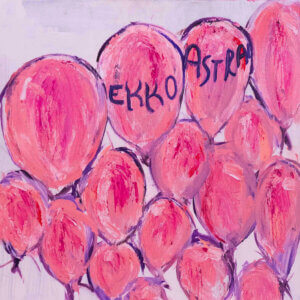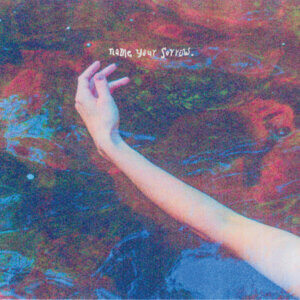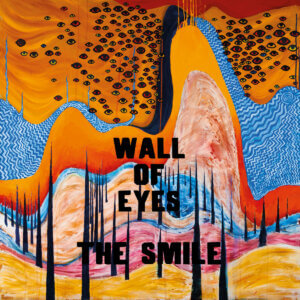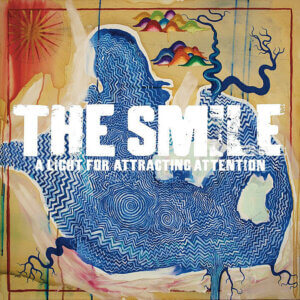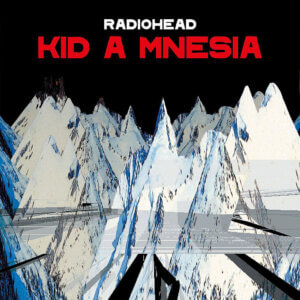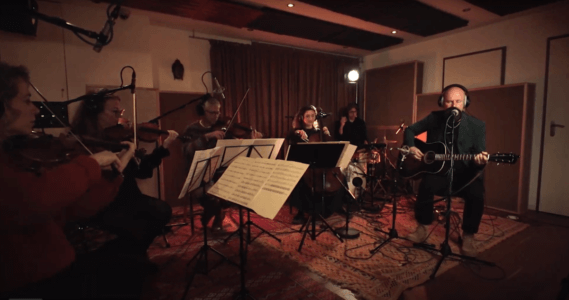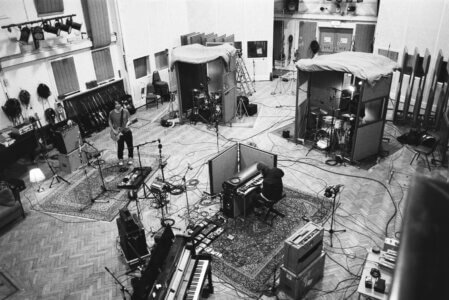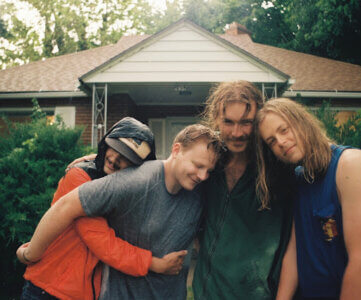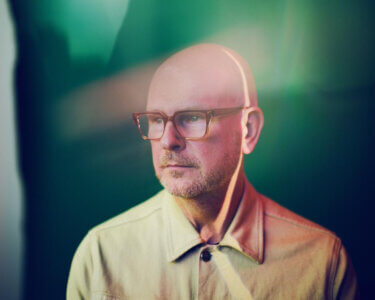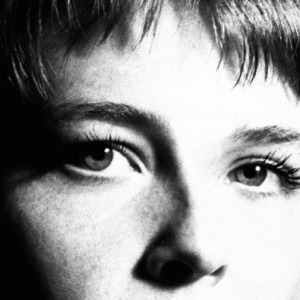
7.2
Earth
EOB
Though it’d be hard to pin the underdog tag on Radiohead co-founder Ed O’Brien— consider the heaps of praise and adulation the English group have garnered and maintained since breaking through in 1992 with their debut single, “Creep”— it’s fair to say that the musician isn’t the de facto public face of the band. O’Brien said as much while speaking with NPR about Earth, his solo debut as EOB, noting that he plays a more “supportive role” within Radiohead, often deferring attention to frontman Thom Yorke. Though he apparently “never planned to make a solo record”, O’Brien has been chipping away on Earth’s nine songs over the last several years, a time that saw him moving his family from the UK to Brazil, and then back out to Wales. A crack team of musicians are orbiting O’Brien’s Earth, but the nine- song set is his proper attempt to “steer the collective…as a leader”. All told, he does a damn fine job.
While Earth is O’Brien’s first major work away from Radiohead, the imprint left by his longtime band on this solo cycle is understandable. Following a few introductory shaker sounds and digital popcorn blips, album opener “Shangri-La” even has EOB delivering his lines in a familiar, Yorke-like falsetto— though his voice grows into its own distinctly oaken texture once he drops down an octave. The song itself is fully hypnotic, with the slow-build groove forging forward with fuzztone bass, multi-track vocal melodies, and scrappy back-end guitar leads from Portishead’s Adrian Utley. Later, the dance floor-ready “Olympik” channels Zooropa-period U2 with its digitalistic pulse, O’Brien lasering out Edge-style leads atop the lock-groove rhythms provided by drummer Omar Hakim and bassist Nathan East.
EOB’s Earth balances this kind of electronics-forward soundscaping with more pastoral meadows of folk, sometimes within the same song. Take “Brasil”, which begins with a gorgeous section of finger-picked acoustics before dropping into mellow-high four-on-the-floor loops and paisley peals of guitar.
Though it’s clear that the “Eden Days/Golden Nights” EOB sings of on “Brasil” were inspired by his time living near the Mata Atlântica, album highlight “Banksters” pulls the most obvious sonic inspiration from the South American country. O’Brien’s take on a traditional bossa nova involves the infectious 7/8 rhythms, jazzy chord work, and clave-clapping percussive hits so identifable with the ultra-soothing genre, but he also subverts expectations with a bit of distorted, open-tuning slide work, not to mention an ominous lyrical theme— While softly sung, O’Brien anti-capitalist approach lashes out at Wall Street predators and ponzi schemes. It’s a big pivot from the bulk of Earth’s lyrics, which focus on finding your paradise (“Shangri-La”, “Brasil”) or muse on love (see the meditative “Mass”).
With “Cloak of the Night,” a compact acoustic duet with English singer Laura Marling, O’Brien suggests that Utopia isn’t so much a place as it is a feeling you share with someone, through good times and bad (“no fear/let love prevail”).
While EOB’s debut harkens back to some of Radiohead’s finest post-00s works, O’Brien also effortlessly branches off from the blueprint with a wild mix of Brazilian pop, Madchester house, and gentle folk. Whatever Radiohead’s plans are for the future, it’s EOB’s Earth right now, and we’re lucky to live in it.
review by Gregory Adams
Latest Reviews
Tracks
Related Albums
Related News
Advertisement
Looking for something new to listen to?
Sign up to our all-new newsletter for top-notch reviews, news, videos and playlists.

